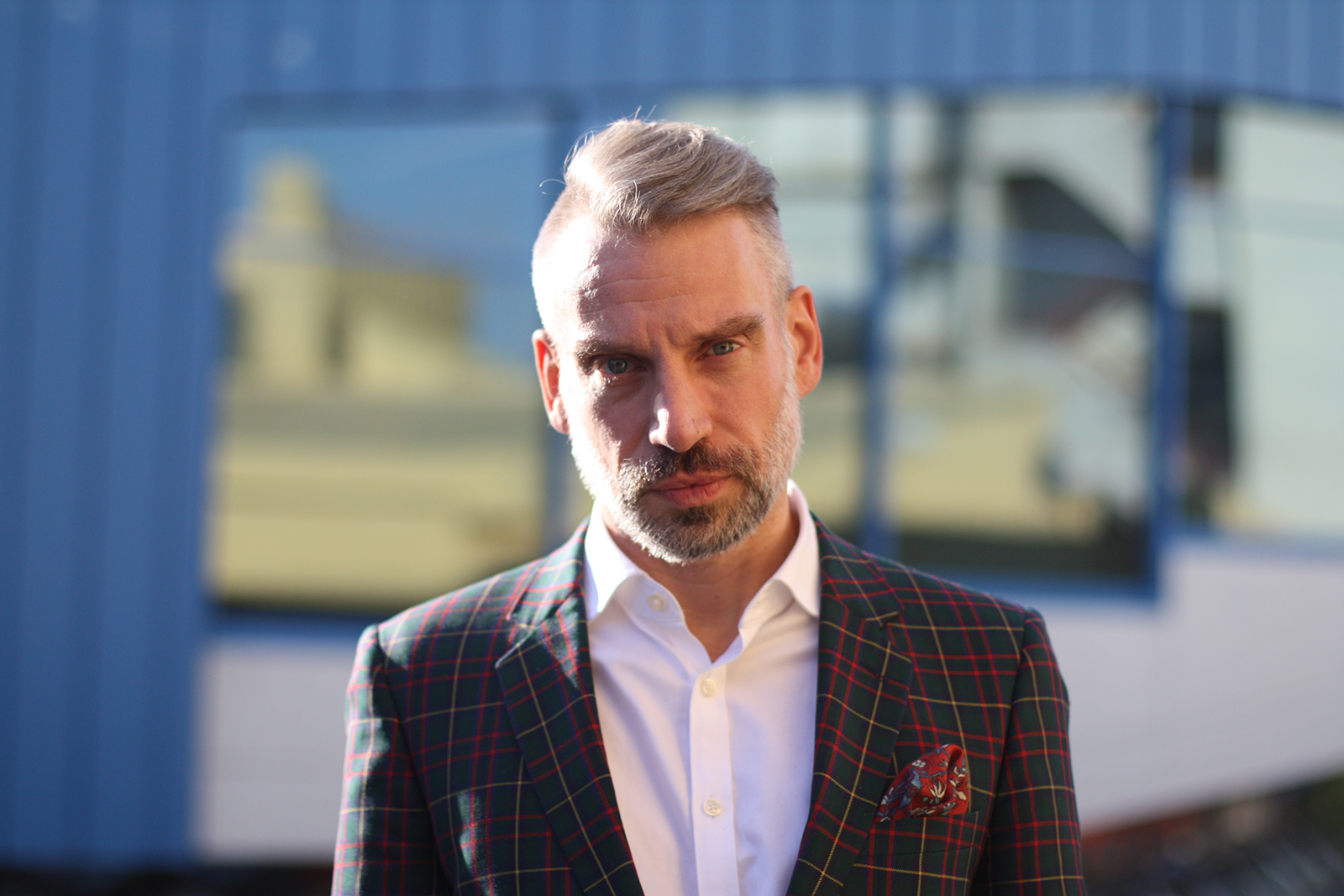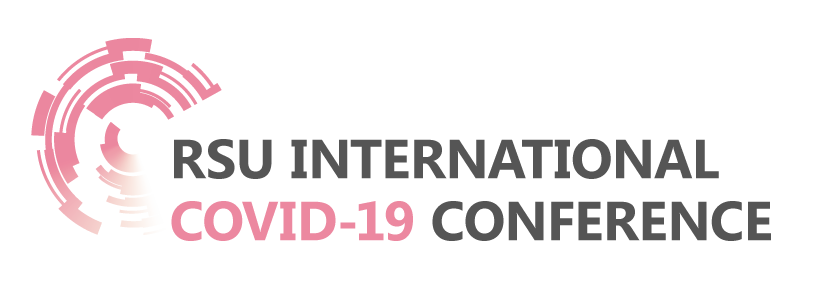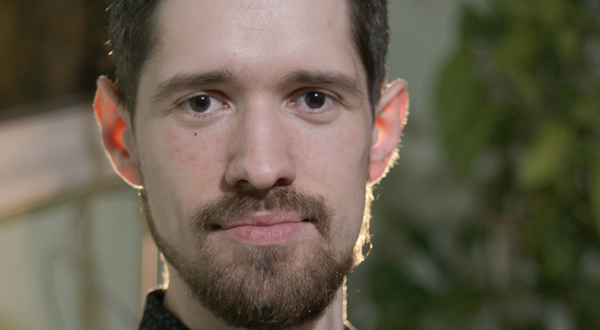Uncovering the Psychology of Collective Behaviour in Times of Covid-19
During crises, the outcome at large is determined by how people respond. Collective behaviour, judgement and decision-making, particularly regarding medical matters, are at the core of Professor Wolfgang Gaissmaier’s research interests, the results of which can be found in leading journals of psychology and medicine.
He’s a full professor of social psychology and decision sciences at the University of Konstanz, Germany, and has received many scientific and teaching awards, including the Otto Hahn Medal for outstanding scientific achievements by the Max Planck Society.

Professor Wolfgang Gaissmaier
The keynote speech by professor Gaissmaier at the RSU International Covid-19 conference is enabled by the Family Vaccination Centre (Ģimenes vakcinācijas centrs) which fosters immunisation in Latvia. Reached over Zoom in the South of Germany, the professor seems keen to travel to Riga at the end of April and to deliver the speech on the spot at the event which will be held in a hybrid format. ‘When participating in conferences that are held solely online, researchers often cut vegetables for dinner at the same time,’ he laughs, and states that nothing replaces live contact. As the professor puts it – such contact is needed for his research to pass the sanity test. ‘Unlike many participants of your conference, I’m not a physician, but my research aims to deliver solutions for medical daily life. Meeting doctors in person and talking about my findings is vitally necessary, because it helps to steer my work in the right direction. Such interactions are invaluable, and Covid-19 has shown it to us,’ says professor Gaissmaier.
The pandemic has been our reality for over two years. How have you spent this time professionally – hibernating or quite the opposite?
Survival mode was on for many researchers in my circle. Many have focused on research issues that they knew well, instead of being experimental with new projects, new collaborations. Group experiments at the university, of course, were put on hold at various phases of the pandemic, while online methods, including surveys and experiments, were pushed further. At least we were able to continue practical work, unlike field biologists or other scientists. Overall, it has been quite an active period.
What would you say are the few things that we have learned from Covid-19?
Firstly, Covid illustrated how efficient the people can be if they work towards the same goal and do it across nations, like it was with the development of vaccines.
In general, the pandemic highlighted the importance of science. There was a certain body of knowledge about viruses and contamination, that we knew prior to Covid-19. However, the rest that the public saw was science evolving in real-time. It included a lot of uncertainty, and people had to deal with. Scientific evidence is always preliminary – it can change, which is hard to accept for many. The public and politicians have come a long way to see how helpful science actually is, but also how preliminary and uncertain the findings may be.
Not only uncertainty, but also the disagreement in science was highlighted by Covid. During the pandemic, one could observe how varied the discourse of science can be. Scientists who disagree with each other do not violate the principles of science – quite the opposite.
Finally, Covid-19 has shown an immense polarisation of groups. Even if we knew that among our schoolmates or other acquaintances there were people with different views on knowledge and epistemology, before Covid it did not matter as much. If I had friends who were into alternative medicine or homeopathy, which I personally believe to be nothing more than placebo, it did not affect our friendship – not up until Covid. During the pandemic, it influenced us directly – for example, when some parents at your kids’ school are against vaccination, or question the benefit of wearing masks.
This brings us to your keynote speech – the painful topic of vaccine hesitancy.
Yes, I’ll talk about emotion versus evidence in decision-making. During Covid we’ve seen people dismissing scientific evidence whenever it does not fit to their beliefs. Science denialism is not a new phenomenon, but Covid brought it to an unprecedented scope, across the entire political spectrum. If we cannot agree upon facts, it is hard to talk to the public, to come to consensus, and move forward. This is a fundamental issue which deserves researchers’ attention.
When we talk about it, for example, with students, it appears to be very tempting to point fingers at science deniers – students in general agree that facts should be considered and science should be trusted. However, when I provoke them by offering facts on climate science, troubles with migration, biological sex versus socially constructed gender, my students start to struggle as it becomes clear that, to some extent, facts might clash with ideology for each one of us. Religion is the most demonstrative example. As doctor House put it in the famous TV show: “If you could reason with religious people, there would be no religious people”.
Medics have been the most visible Covid frontline warriors. What is the role of psychology in this global crisis?
My colleagues often say that I don’t have a strong enough identity of a psychologist, but in general I’d say we have to talk about behavioural sciences, not psychology alone. Behavioural sciences have been contributing greatly to understanding and solving this crisis, because it is very much about how the population thinks and behaves.
The vaccination behaviour, for instance, reminds us about the prisoner’s dilemma – if everybody else is vaccinated, it could be rational for me not to get my vaccine. Instead of framing vaccination as purely for one’s individual benefit, we should rather frame it as a step towards collective benefit. Particularly for those who cannot be vaccinated, like new-borns or elderly people for whom the jab may be not as effective. These insights are important in order to understand how the pandemic evolves, but also in order to understand – what should we do next?
And what should we do next? Is there a recipe?
No matter how much I like simple solutions to complex problems, there is no easy way out in this case. Mainly because the societal disagreements are caused by different reasons – we cannot talk about homogenous groups neither among Covid deniers, nor among those who take it seriously. If we could find a way how to agree upon basic facts, we can and should still debate about the political implications that are also based on our heterogeneous values, for instance, regarding the trade-off of the benefits and harms of lock-downs or other measures. This is crucial for democracy.
In order to achieve that, the philosophy of knowledge should be taught already to schoolchildren. An inquiry into understanding how we know what we claim to know would lay the necessary foundations for a better future. It would teach us not to point fingers and alienate the other side, but to listen to each other and discuss our often different values. For this to be fruitful, however, we need to be at least able to agree on the basic facts, so there is still much to do.



